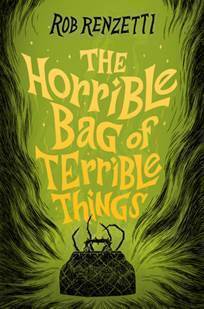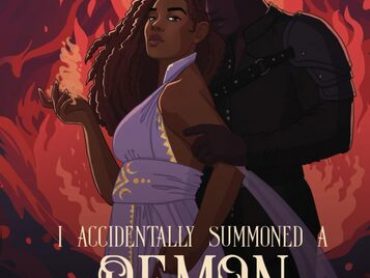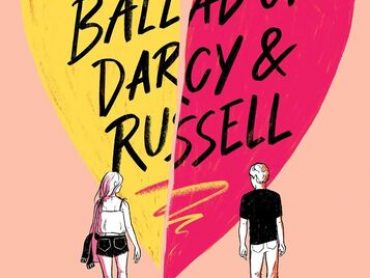Rob Renzetti is the author of The Horrible Bag of Terrible Things. The Horrible Bag of Terrible Things follows Zenith, who finds a strange, unsettling bag at his front door. The novel explores horror, and humor along with an imaginative fantasy world. YEM was able to speak with Rob about writing horror, the writing process, and what it is like creating fantasy worlds.
Young Entertainment Mag: When did you first know that you wanted to be an author?
Rob Renzetti: I’ve been creating and writing stories for cartoon characters most of my life, at first as a hobby and then as an actual career. But the desire to write books started around ten years ago and subsequently I had the opportunity to author or co-author several books for Disney Publishing.
YEM: Your books have imaginary fantasy worlds incorporated into them. Where do the ideas for these worlds come from?
Rob: I take inspiration wherever I can find it. Since the fantasy world of GrahBhag is accessed through a horrible, repulsive bag consisting of bizarre animal skins stitched together, I thought the world inside should also seem stitched together and I incorporated terms and concepts from the crafts of sewing, tailoring, and garment making.
YEM: Your book The Horrible Bag of Terrible Things has a horror aspect. Have you always been fascinated by horror?
Rob: Yes, if running away and hiding is a kind of fascination. When I was very young I was afraid of scary movies and books. But as I got older I would force myself to be brave and watch very old (and very tame) horror movies that would pop up on my local TV station during the safe daylight hours. I also became interested in certain filmmakers that were “horror adjacent” like Alfred Hitchcock. The first real horror author that I fell in love with was Edgar Allen Poe.
YEM: Is any part of your book inspired by your real life?
Rob: Like Zenith, when I was young I had an older sibling that acted more like another parent. Actually, I had two brothers who were eight and eleven years older than me. My middle brother did the bossing around and my oldest brother was more parental and protective. It wasn’t really a bad thing except that I never got to watch what I wanted on the big living room television if they were home.
YEM: What is your writing process like?
Rob: Scattershot. I come at it from lots of different angles. Sometimes there’s a character that I really want to explore, sometimes it’s an abstract concept. With The Horrible Bag of Terrible Things it was the title that came first. I make notes and compile them and then try to mold them into a coherent outline. I copy that outline and write finished passages sequentially, deleting the rough notes as the ideas are incorporated or discarded, and adding new ideas into that same document as they occur to me. I find that question marks are very useful. I’m much more willing to write down a “stupid” idea if the sentence ends with a question mark. Sometimes those “dumb questions” end up being incredibly useful.
YEM: How long did it take you to write The Horrible Bag of Terrible Things?
Rob: It was almost five years from my first notes to the final edits, though I was working on it very slowly, an hour here and there, through much of that period while holding down a full-time animation job.
YEM: Which book had you fall in love with literature?
Rob: If we are talking about classic literature, then I’d say it was “Great Expectations” by Charles Dickens. We read it as a class assignment in my high school English class. I was enthralled by the sprawling narrative and colorful characters, especially Miss Havisham. And I think that Pip’s long unrequited love for Estella really spoke to my angst-ridden teenage heart.
YEM: What do you hope your readers take away from your book?
Rob: A spine-tingling chill.
YEM: Do you have any advice for someone who wants to be an author?
Rob: Read and write. Read whatever grabs you. Read deeply. Go down a rabbit hole with an author you love and devour everything they’ve written. Read widely. Read something in a genre you think you hate. Read something really old and “out-of-date.” Read the newest bestseller. And when you get an idea of your own, no matter how small or “stupid,” write it down before it flies out of your head. Better to have it and decide it’s no good, than to lose something that could turn out to be valuable.
YEM: What is your favorite part about writing for a middle grade audience?
Rob: That time of life can be so consequential in determining what sort of person you turn out to be. I hope to help create an appetite for the offbeat in middle grade and young adult readers that they can carry forward into an unconventional adulthood. The world needs more weird people.
YEM: What is your favorite line or quote in your book?
Rob: I like the first line a lot: “The bag groaned.”
YEM: What do you have coming up in the future for your writing?
Rob: The second and third books in the Horrible series, which are both at various stages in the publication process. After that, I’ve got a lot of “dumb questions” written down on scraps of paper and on my laptop. I’ll see what I can make of them.




